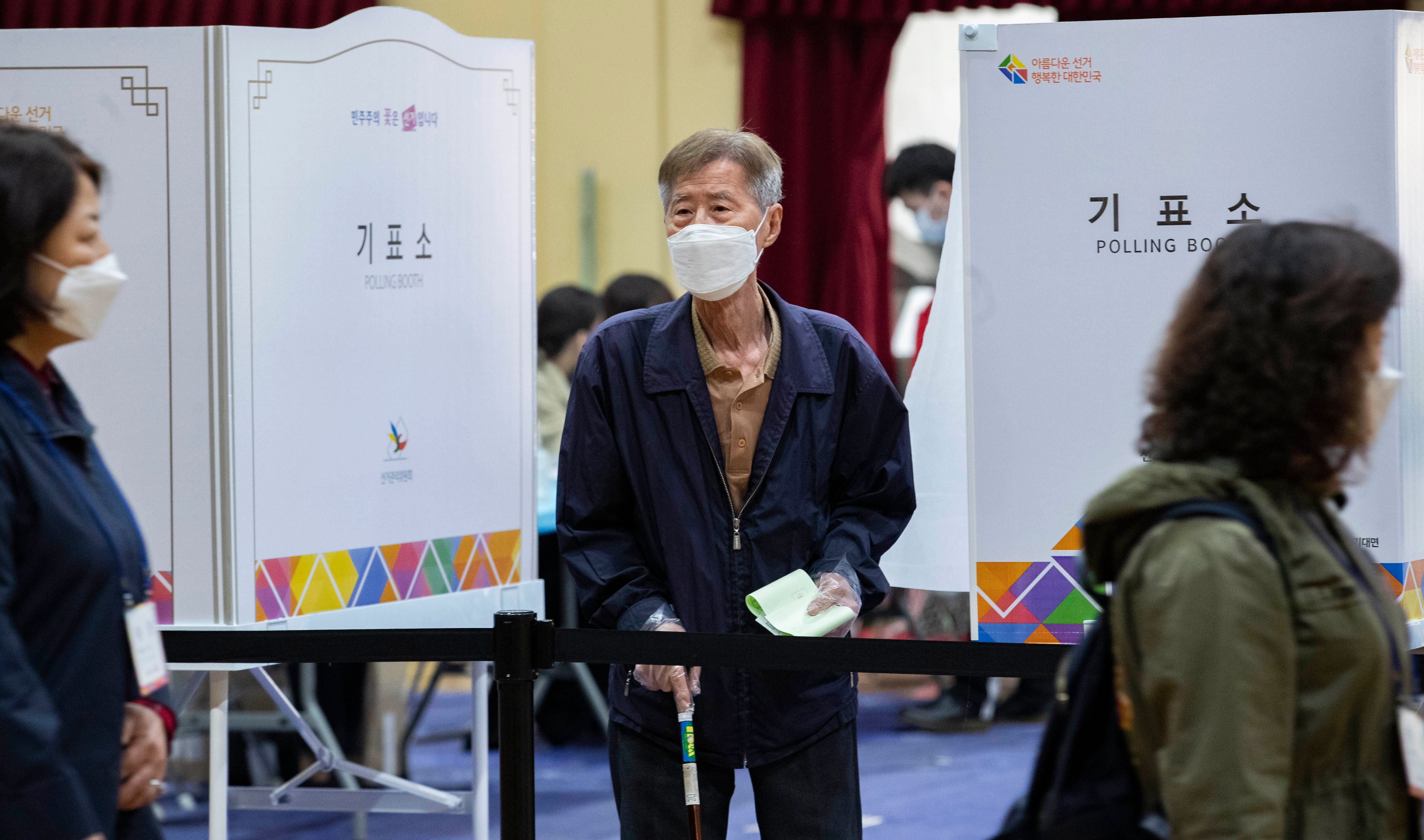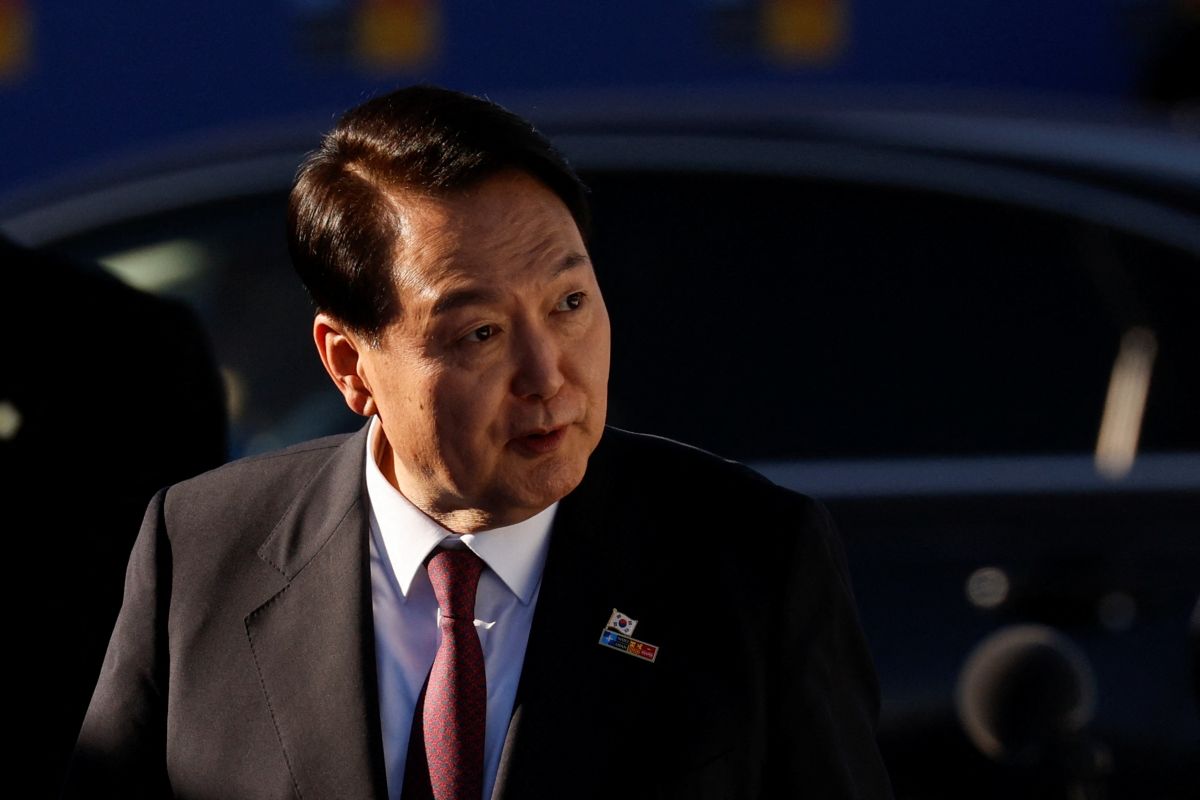Opposition Wins Parliamentary Elections in South Korea
In South Korea’s parliamentary elections held on 10 April, the opposition Democratic Party won 175 seats in the 300-seat National Assembly. Its victory will make it much more difficult for President Yoon Suk-yeol, of the People’s Power Party, to achieve his domestic policy goals by the end of his term in 2027. It may also affect South Korea’s foreign policy in the long run, manifesting in less-explicit siding with the U.S. in its rivalry with China and moving away from the socially contested rapprochement with Japan.
 Chung Sung-Jun / Reuters / Forum
Chung Sung-Jun / Reuters / Forum
What was at stake in the election?
The parliamentary elections in South Korea will not lead to the formation of a new government. The new parliamentary majority can pass or reject laws prepared by the executive branch, headed by the president, with the prime minister his deputy. The election was an assessment of Yoon’s presidency since he took office in 2022. The opposition liberal Democratic Party (DP) hoped to maintain at least its existing majority (180 seats in the National Assembly), allowing it to reject presidential laws and push through its legislative initiatives. The ruling conservative People’s Power Party (PPP), on the other hand, wanted, above all, to keep the opposition from winning 200 or more seats, which would allow it to reject presidential vetoes, amend the constitution, or even initiate impeachment proceedings against the head of state.
What were the election results?
The DP won the election, taking 175 parliamentary seats (58%) along with its satellite party. The opposition was further strengthened by 12 seats from another liberal grouping, the Korean Reconstruction Party, which formed for the election campaign. As a result, the liberal camp can count 187 seats altogether. The PPP, together with its sister party, won 108 seats. The remaining five seats went to three smaller groups. The turnout was 67%, the highest since the 1992 general election. The election result was mainly influenced by public dissatisfaction with the increasingly high cost of living, including rising property and food prices. Also working against the PPP was the president’s unwillingness to compromise with the opposition and corruption scandals involving his associates, such as the case of the former defence minister.
What do the results mean for South Korean domestic politics?
Yoon is the first president in the democratic history of the Republic of Korea to rule without a parliamentary majority for his entire five-year term. The PPP’s loss in these elections confirmed that the majority of the public is against the president, who, according to polls, only enjoys around 30% support. As in the last two years, the parliamentary majority will have the power to reject laws introduced by the government. Since the beginning of Yoon’s term, parliament has passed only about one in three proposed laws. Given the liberals’ inability to override the president’s veto, however, legislative gridlock may persist on many issues, hampering the implementation of Yoon’s most important projects, such as a programme to support the biggest companies (chaebols) and the development of nuclear power. The PPP’s election loss is likely to lead to a reconstitution of the government, as the prime minister and the president’s advisers and secretaries for domestic and economic affairs have resigned. The negative assessment of Yoon’s policies may also lead the PPP to urge him to withdraw from the party so that he is not a liability to it ahead of the 2027 presidential election.
How could the election results influence Yoon’s foreign policy?
Foreign policy is the executive’s responsibility, and the president can act in this area without parliamentary approval. However, the parliamentary majority can indirectly influence foreign policy by even more sharply criticising the president’s unpopular decisions. This includes the rapprochement with Japan, strengthening of trilateral cooperation with the U.S. and Japan, and the Yoon administration’s firmness with North Korea. The opposition may also urge the government to soften its pro-U.S. stance, manifested by South Korea increasingly siding with the U.S. in its rivalry with China. There also may be growing pressure from parliament on the government to support high-tech exports, such as computer chips, to China, although the U.S. has urged its allies to limit such activity. Opposition politicians also accuse Yoon of supporting Ukraine excessively and unnecessarily. The parliamentary majority may also make it difficult to pass legislation to increase foreign engagement, such as development aid and ratification of international agreements.
It is possible, however, that the president, who has been uncooperative with the opposition for the past two years, will maintain or even strengthen his current foreign policy directions, including the hard line towards North Korea and intensified cooperation with NATO. The low public support may weaken Yoon’s credibility in his partners’ eyes, for example, in trilateral cooperation with the U.S. and Japan, and in their perception of the sustainability of South Korean engagement. The opposition’s win also increases the chances that its candidate could win the 2027 presidential election. If this were to happen, South Korea might move away from the issues most contested by the DP and criticised in public opinion, such as the Yoon’s conciliatory stance towards Japan on historical issues.




